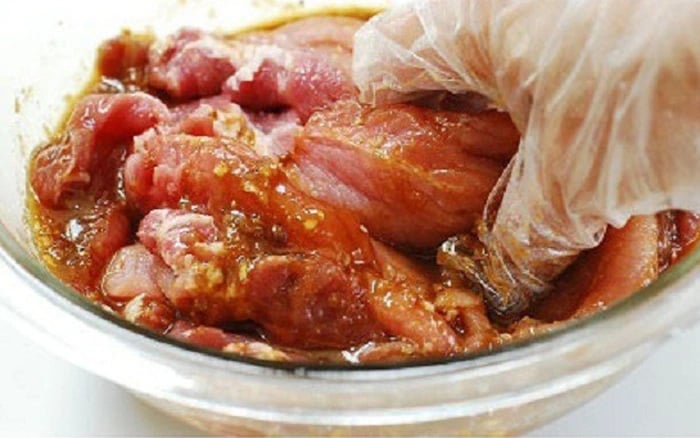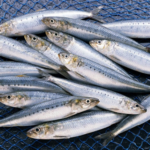Pork, Chicken: Over 30 minutes for larger pieces.
Beef, Lamb: 10 minutes for a whole piece.
Sliced or Minced Meat: Under 5 minutes or no marination. Season during cooking.
Fish: 15–20 minutes. Sea fish requires less salt than river fish.

How Long Should You Marinate Meat for the Best Flavor Absorption?
Seafood:
- Shrimp with shell, thick squid: 15-30 minutes, not more than an hour.
- Shelled shrimp, squid: 5-10 minutes or no marination.
- Octopus should not be marinated for more than 15 minutes, or it will release water and lose its flavor.
3. Some Tips for Using Spices with Meat
Salt:
There are various types of salt used in cooking, categorized by grain size and salinity. Professional chefs often use kosher salt for meat marination and sea salt for fish and seafood.
Do not use iodized salt for long periods as its high salinity can draw out moisture and dry out the food.
Monosodium Glutamate:
Monosodium glutamate helps tenderize meat and balance saltiness. It is only harmful when cooked at temperatures above 300°C, so you can safely use it for marination.
Honey:
Honey enhances the flavor of meat. You can use it in the marinade or brush it on the meat while grilling.
However, honey is best suited for pork and chicken. For red meats like beef and lamb, sugar is a better option.

The Right Amount of Time to Marinate Meat for Grilling or Stir-Frying
Ginger and White Wine:
To eliminate the fishy smell from seafood, use crushed ginger or a small amount of white wine.
Cooking Oil and Olive Oil:
Cooking oil is the better choice for marinating meat. Olive oil is more suitable for raw applications, like salads, or for quick stir-fries.
Certain foods, like sliced beef, salmon fillets, cod, lobster, and clams, are best enjoyed with minimal seasoning or just salt and pepper.
The Secret to Saving an Over-Salted Dish: A Magic Ingredient to the Rescue!
When it comes to cooking, we’ve all had those moments where we’ve accidentally added too much salt. Throwing away the dish seems wasteful, but it’s equally unappetizing to serve it as it is. So, what can be done? Fear not, as there are a few simple tricks to balance out the saltiness in your soup, stew, or stir-fry.






































